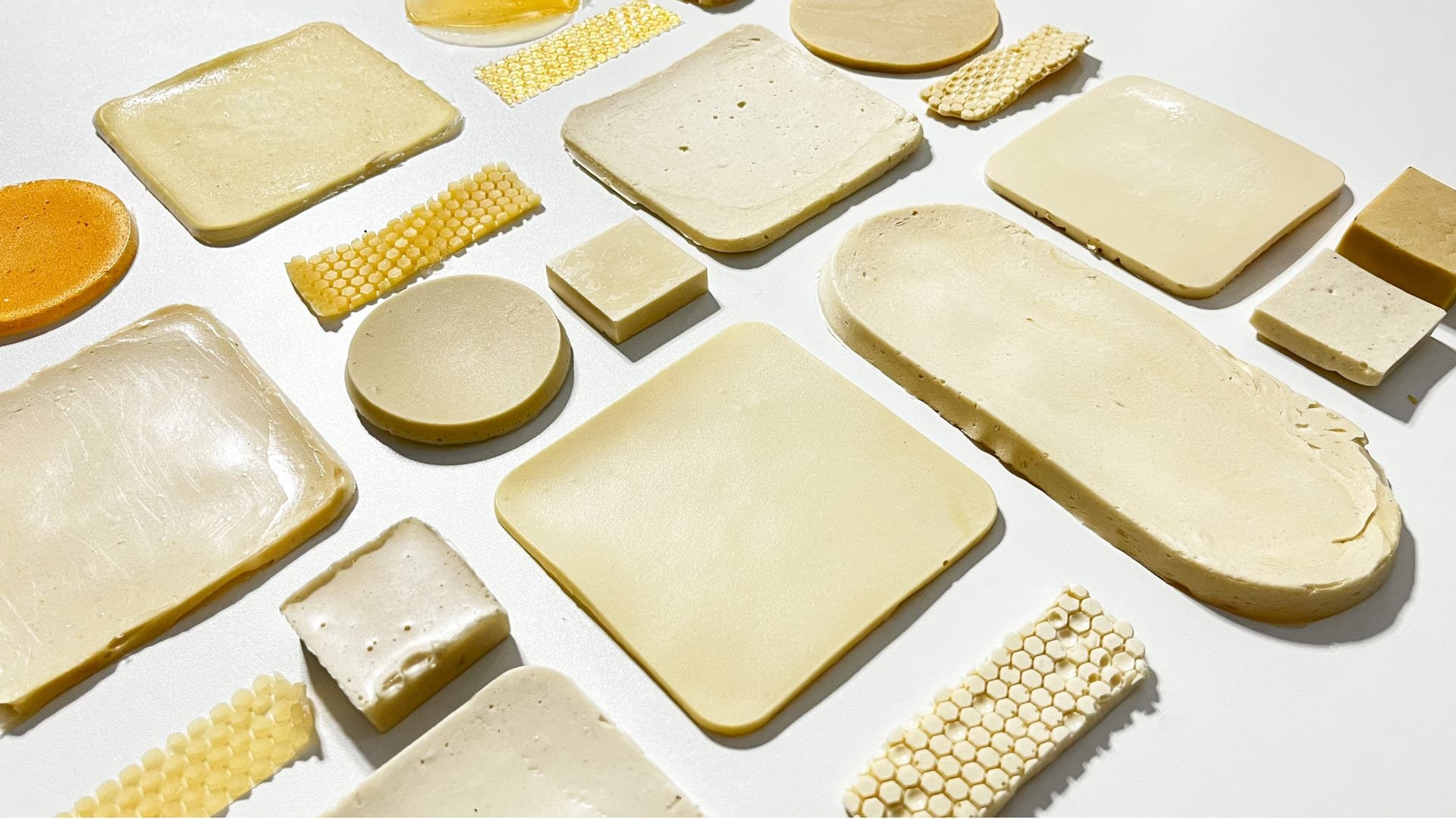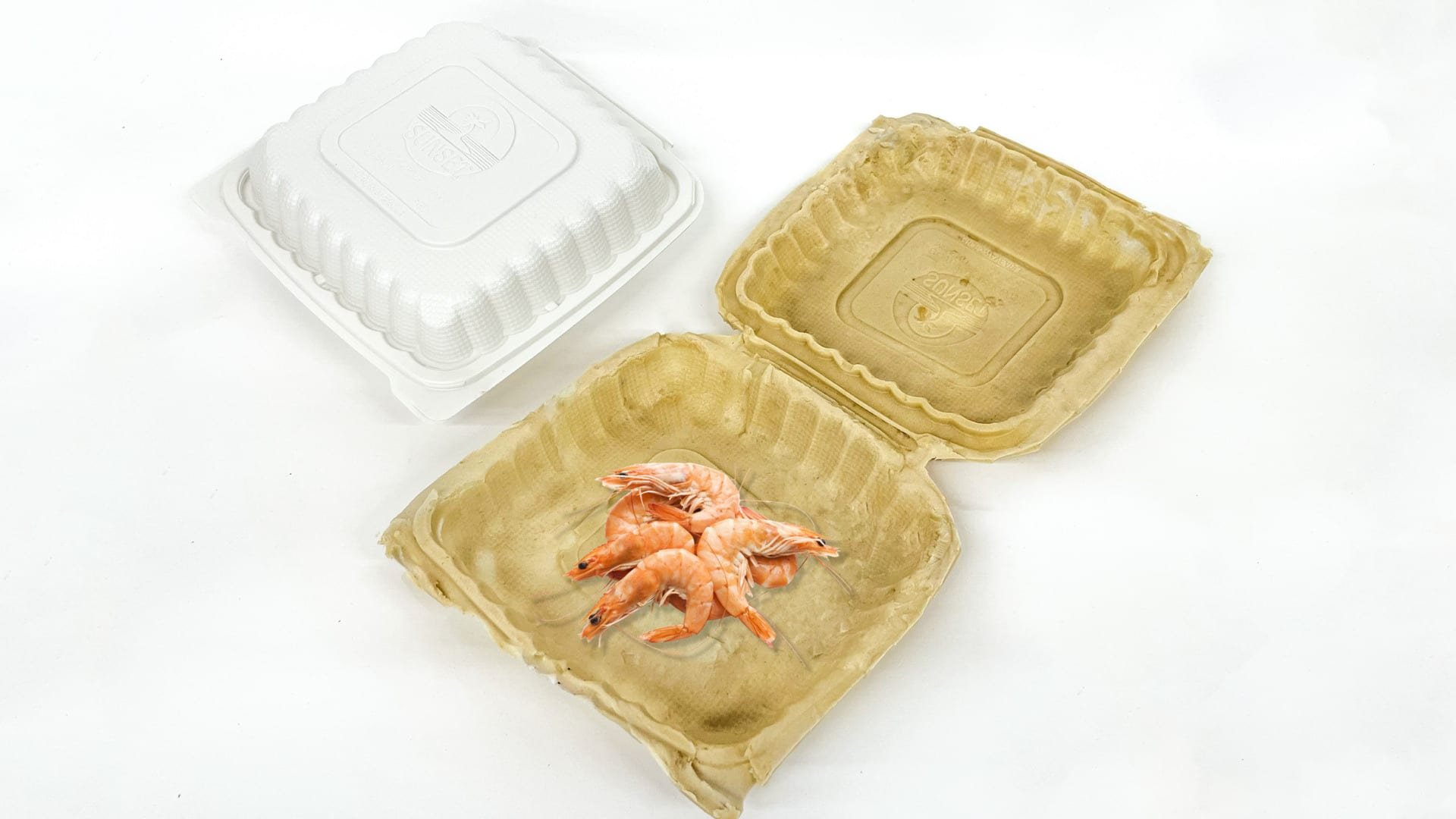
Shrimpak
Bio-material alternative to single-use food packaging made from shrimp shell waste
WORK DONE AT: Pratt Institute, New York
WHEN: 2022 | 6 Weeks
GUIDED BY: Jeanne Pfordresher Mary Lempress
Every day, 8 million pieces of plastic waste find their way into the ocean. Of which 44% of the plastic is linked to takeout food packaging. Plastic contaminants such as food containers, wrappers, single-use bags, and plastic bottles are the most widespread pollutants.
On the other hand every year, 6 million to 8 million tonnes of waste crab, shrimp, and lobster shells are produced globally, by the seafood industry. In developing countries, shell waste is often dumped in landfills or the sea.
Shrimpak replaces single-use plastic with a material made from chitosan which is extracted from the exoskeleton of shrimp and crabs. Shrimpak is a biodegradable, shock-absorbent, lightweight, and biocompatible material making it suitable for food packaging. It can be moulded into food containers, cups, packing peanuts, and other shapes.
Once dried into form, the material can be turned back into the original bioplastic solution, making it infinitely recyclable. Alternatively, if the package is thrown away and lands in a landfill or ocean. It starts breaking down within a few weeks, unlike plastic which takes years to break down. It can also be poured into the soil in its liquid form as a natural, non-polluting fertilizer.
EXHIBITED AT:
Imperial College Spring Show 16th – 19th Feb 2023
Royal College of Art Open Studios: Work in Progress Show 3rd – 4th Feb 2023





